Pacific leaders commit to gender equality in Forum communique
01st September, 2012
FORTY-THIRD PACIFIC ISLANDS FORUM
Rarotonga, Cook Islands
28 – 30 August 2012
Annex 1: PACIFIC LEADERS GENDER EQUALITY DECLARATION
30 August 2012, Rarotonga, Cook Islands
The Leaders of the Pacific Islands Forum met from 27 to 30 August 2012 in Rarotonga and brought new determination and invigorated commitment to efforts to lift the status of women in the Pacific and empower them to be active participants in economic, political and social life.
Leaders expressed their deep concern that despite gains in girls’ education and some positive initiatives to address violence against women, overall progress in the region towards gender equality is slow. In particular Leaders are concerned that women’s representation in Pacific legislature remains the lowest in the world; violence against women is unacceptably high; and that women’s economic opportunities remain limited.
Leaders understand that gender inequality is imposing a high personal, social and economic cost on Pacific people and nations, and that improved gender equality will make a significant contribution to creating a prosperous, stable and secure Pacific for all current and future generations.
To realize this goal, Leaders commit with renewed energy to implement the gender equality actions of the Convention for the Elimination of All Forms of Discrimination against Women (CEDAW), the Millennium Development Goals (MDGs), the Revised Pacific Platform for Action on Advancement of Women and Gender Equality (2005 to 2015); the Pacific Plan; the 42nd Pacific Island Forum commitment to increase the representation of women in legislatures and decision making; and the 40th Pacific Island Forum commitment to eradicate sexual and gender based violence.
To progress these commitments, Leaders commit to implement specific national policy actions to progress gender equality in the areas of gender responsive government programs and policies, decision making, economic empowerment, ending violence against women, and health and education:
Gender Responsive Government Programs and Policies
- Incorporate articles from the Convention for the Elimination of all forms of Discrimination against Women (CEDAW) into legislative and statutory reforms and policy initiatives across government;
- Support the production and use of sex disaggregated data and gender analysis to inform government policies and programs;
- Strengthen consultative mechanisms with civil society groups, including women’s advocacy groups, on key budget and policy issues of national and sub-national governments.
Decision Making
- Adopt measures, including temporary special measures (such as legislation to establish reserved seats for women and political party reforms), to accelerate women’s full and equal participation in governance reform at all levels and women’s leadership in all decision making.
- Advocate for increased representation of women in private sector and local level governance boards and committees (e.g. school boards and produce market committees).
Economic empowerment
- Remove barriers to women’s employment and participation in the formal and informal sectors, including in relation to legislation that directly or indirectly limits women’s access to employment opportunities or contributes to discriminatory pay and conditions for women.
- Implement equal employment opportunity and gender equality measures in public sector employment, including State Owned Enterprises and statutory boards, to increase the proportion of women employed, including in senior positions, and advocate for a similar approach in private sector agencies;
- Improve the facilities and governance of local produce markets, including fair and transparent local regulation and taxation policies, so that market operations increase profitability and efficiency and encourage women’s safe, fair and equal participation in local economies.
- Target support to women entrepreneurs in the formal and informal sectors, for example financial services, information and training, and review legislation that limits women’s access to finance, assets, land and productive resources.
Ending violence against women
- Implement progressively a package of essential services (protection, health, counselling, legal) for women and girls who are survivors of violence.
- Enact and implement legislation regarding sexual and gender based violence to protect women from violence and impose appropriate penalties for perpetrators of violence.
Health and Education
- Ensure reproductive health (including family planning) education, awareness and service programs receive adequate funding support;
- Encourage gender parity in informal, primary, secondary and tertiary education and training opportunities.
Leaders called on Development Partners to work in a coordinated, consultative and harmonised way to support national led efforts to address gender inequality across the region in line with the Paris Declaration on Aid Effectiveness and Cairns Compact on Strengthening Development Coordination in the Pacific. Leaders also requested Development Partners to increase financial and technical support to gender equality and women’s empowerment programs, and to adopt strategies within their programs to provide employment and consultation opportunities for women in the planning and delivery of development assistance to the region.
Leaders agreed that progress on the economic, political and social positions of women should be reported on at each Forum Leaders meeting. They directed the Forum Secretariat, with the support of the Secretariat of the Pacific Community and Development Partners, to develop, as part of the Pacific Plan performance monitoring framework and annual report to Leaders on country progress in implementing the above commitments and moving towards achieving greater gender equality.
Pacific Islands Forum Secretariat via PACNEWS
* * *
(30 Aug 2012) Papua New Guinea’s Prime Minister is pledging to do more to combat his country’s high levels of violence against women.
Australia has announced a 330 million US dollar initiative to help women in the Pacific, including supporting gender equality in parliaments, economic opportunities, and to improve safety for women.
Papua New Guinea elected three women in its recent elections, but Peter O’Neill acknowledges that violence against women remains a huge problem.
“I think more needs to be done, we are as government taking that responsibility seriously, we are working together with many of the NGO groups in the country to ensure that there is awareness among families, in particular the remote communities through out our country.”
The Papua New Guinea Prime Minister, Peter O’Neill.
Today, the leaders are to hold their retreat on Aitutaki, where they are expected to discuss a resolution on gender equality to be included in their end of meeting communique.


